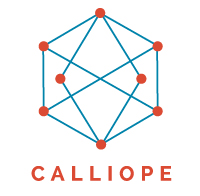The Natural Resources Defense Council (NRDC) sued the Feds today to reinstate the PACE program. The PACE program was a component of ARRA (the Stimulus Bill for those of you non-lawyer geeky types who still choose to read my blog) which allowed the upfront costs of property owners’ clean energy and energy efficiency projects to be financed by local governments, and paid back by homeowners as an increase in their property taxes.
The concept behind the PACE program is that the energy savings from energy efficiency and clean energy projects would outstrip the costs over time, but that the upfront costs were a barrier to many people in implementing the badly needed changes.
Several municipalities and states had implemented these programs, and it sounded like such a good idea that $150 million in the ARRA was dedicated to support them.
Homeowners are able to do the energy upgrades, local governments can take action to ameliorate climate change and the Federal government will help with the financing. Everybody's happy, right?
Not so fast. The Federal Housing Finance Agency, which regulates government sponsored mortgage buyers Fannie Mae and Freddie Mac, and the Office of the Comptroller of the Currency, which regulates national banks stopped the PACE programs in their tracks. According to the NRDC's complaint, available here, the Defendants refused to issue mortgages that had a PACE loan in first priority.
According to the NRDC press release summary of the claims:
NRDC is suing the agencies for halting the programs without justification, and for doing so without following the proper protocol as required by law. This includes failing to conduct a review of the environmental impacts and to provide the public an opportunity to comment before taking this action.
The objections to the actions on PACE have mainly to do with statutory procedural requirements for administrative agency action, the suit serves to shed a light on what is essentially "greenlining"--a modern day equivalent of "redlining."
In 1935, the Federal Home Loan Bank Board (FHLBB) asked Home Owners' Loan Corporation (HOLC) to look at 239 cities and create "residential security maps" to indicate the level of security for real-estate investments in each surveyed city. Such maps defined many minority neighborhoods in cities as ineligible to receive financing. The maps were based on assumptions about the community, not accurate assessments of an individual's or household's ability to satisfy standard lending criteria. Since African-Americans were unwelcome in white neighborhoods, which frequently instituted racial restrictive covenants to keep them out, the policy effectively meant that blacks could not secure mortgage loans at all.
The foreclosure crisis that stemmed from complicated financial instruments legitimately scared the wits out of the Federally backed mortgage entities. But now they are too scared to even do the right thing and support a new financial model that has the possibility of allowing millons of homeowners to make their homes more energy efficient--which will, in turn, create demand for green products and people to manufacture them and install them, which will enable those people to...pay their mortgages.

 Shari focuses on energy, environmental and building code policy, representing international companies, non-profits and trade associations in their policy and communications campaigns
Shari focuses on energy, environmental and building code policy, representing international companies, non-profits and trade associations in their policy and communications campaigns

